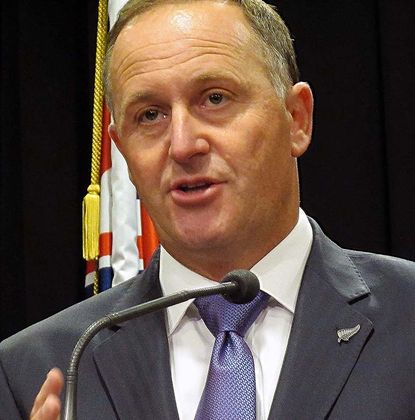
Prime Minister John Key
Prime Minister John Key has warned the hotel sector that peer-to-peer online accommodation is primed to expand “rapidly.”
He says AirBnB, which is New Zealand’s most popular peer-to-peer accommodation provider, will mop up a lot of excess demand in the sector.
“Everywhere in the world, disruptive technology is changing the world that people operate in,” Mr Key told the hotel industry conference last week.
“It may be great for consumers as it can be more efficient and a lot cheaper but go and ask a taxi driver about the impact of Uber,” the Tourism minister says.
Last month the ride-hailing app dropped its prices by 20% and dropped the requirement for drivers to have a commercial licence.
Mr Key says Uber has caused “carnage” in the taxi industry.
“If this is happening to Uber – what’s going to happen with AirBnB? The answer is, it’s going to grow quite rapidly,” Mr Key says.
New data from the government’s “Project Palace” initiative last month revealed an extra 26 hotels are needed for New Zealand to cope with the expected influx of tourists over the next 10 years.
Mr Key says AirBnB will help mop up some of the demand over some of the peak periods in summer.
However, he says New Zealand needs to be more like Australia’s tourism sector, which only has about a month off-season.
“We have to get to a point where we are encouraging people to come at different times and you can sustain your hotels.”
Tourism NZ has already taken steps in promoting the off-seasons, opting to put its whole $80 million budget into promoting the off-peak seasons of autumn and spring.
“We want you to have better flow and that’s what we’re working on,” Mr Key says.
Some still sceptical
Hospitality NZ president Adam Cunningham says it is a concern that much of the peer-to-peer accommodation sector is not subject to the same commercial rates as hotels and motels.
“You have professional operators who are running a commercial motel business, who have to pay commercial rates to justify people staying with them,” he says.
“Yet their market is being chiselled away by those who do not have to pay the same level of rates, or have the same level of commercial responsibility.”
NBR
